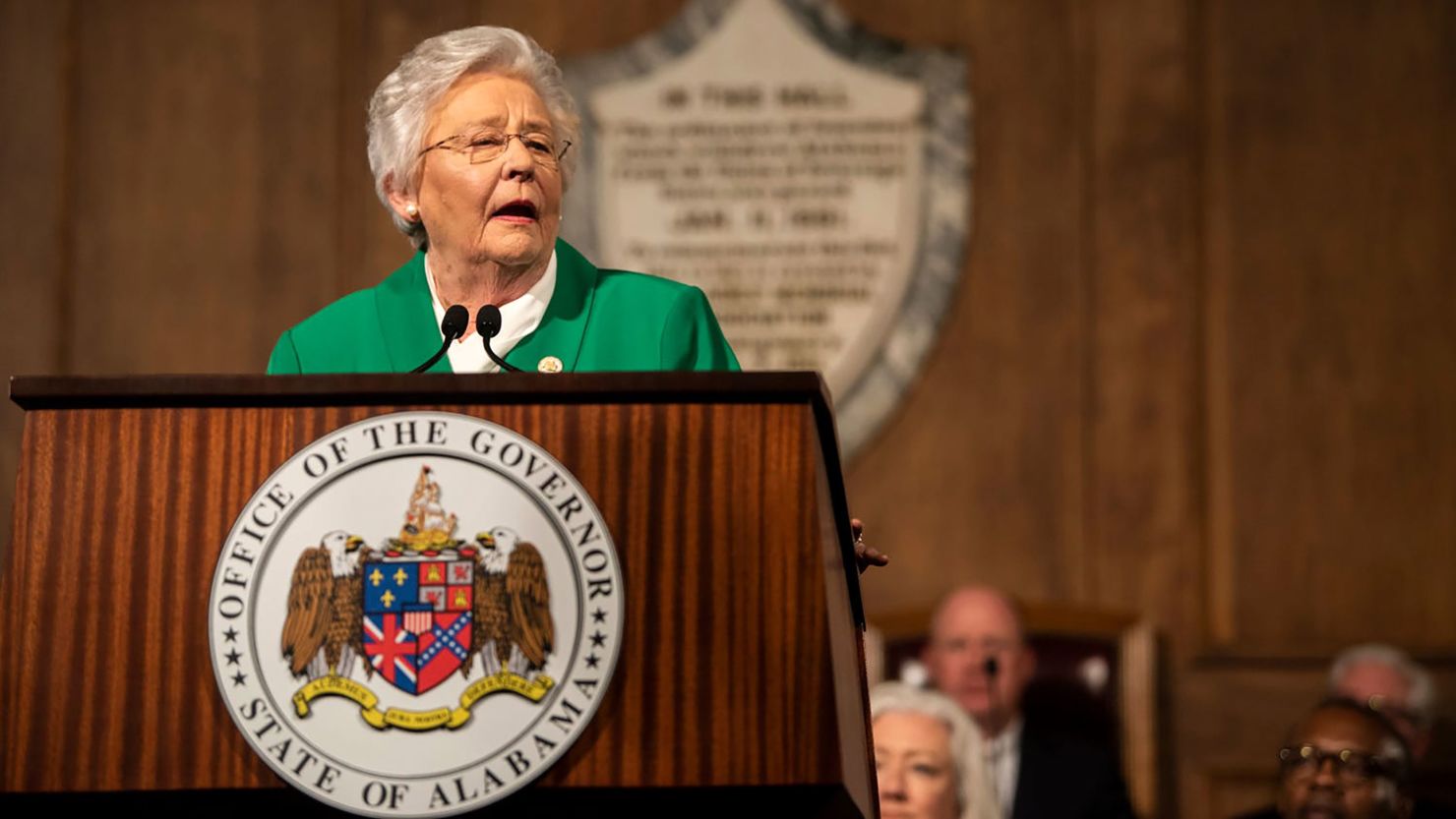Alabama Gov. Kay Ivey on Tuesday signed a bill barring transgender athletes at public colleges and universities from competing in sports that align with their gender identities, as GOP-controlled assemblies across the US continue their pursuit of legislation placing limits on transgender people.
In a statement about the bill signing, Ivey, a Republican, touted the legislation as a step toward “protecting female athletes at all levels and upholding the integrity of athletics.”
“Look, if you are a biological male, you are not going to be competing in women’s and girls’ sports in Alabama,” the governor said. “It’s about fairness, plain and simple.”
House Bill 261 expands on similar legislation for K-12 public schools that Ivey signed into law in 2021, and it requires two- and four-year public institutions of higher education to limit teams and competitions to “biological male” and “biological female” athletes. The legislation, which does not limit coed sports, effectively forces trans athletes to participate only in sports based on the gender they were assigned at birth.
Proponents of such restrictions have argued transgender women have a physical advantage over cisgender women, and that the regulations give female athletes equal opportunities to compete. However, there is little research on trans collegiate athletes. A 2017 report in the journal Sports Medicine found “no direct or consistent research” on trans people having an athletic advantage over their cisgender counterparts.
The US House passed a GOP-led bill similar to Alabama’s in April, though it is not expected to be taken up in the Democratic-controlled Senate. In March, the global governing body for track and field, World Athletics, announced new regulations prohibiting athletes who have gone through what it called “male puberty” from participating in female world rankings competitions.
Opponents say the restrictions are discriminatory, and Alabama’s bill drew the condemnation of groups like the American Civil Liberties Union of Alabama and Human Rights Campaign, whose Alabama director called the bill a “systematic attack against LGBTQ+ people.”
“From dictating what bathrooms we can use to blatantly ignoring the actual problems in women’s sports, these politicians are making Alabama an increasingly hostile place for transgender people and the LGBTQ+ community as a whole,” Carmarion D. Anderson-Harvey said in a statement. “HRC will continue to fight state legislatures across the country that apparently think our rights are optional.”
The signing of the bill comes amid a wave of legislation targeting the transgender community, regarding not only their participation in sports but also access to gender-affirming care – medically necessary, evidence-based care that uses a multidisciplinary approach to help a person transition from the gender they were designated at birth to their affirmed gender, or the one by which they want to be known.
More broadly, more than 490 anti-LGBTQ bills have been introduced nationwide this legislative session, according to the ACLU.
CNN’s Devan Cole, Caroline Kelly and Kelsie Smith contributed to this report.








